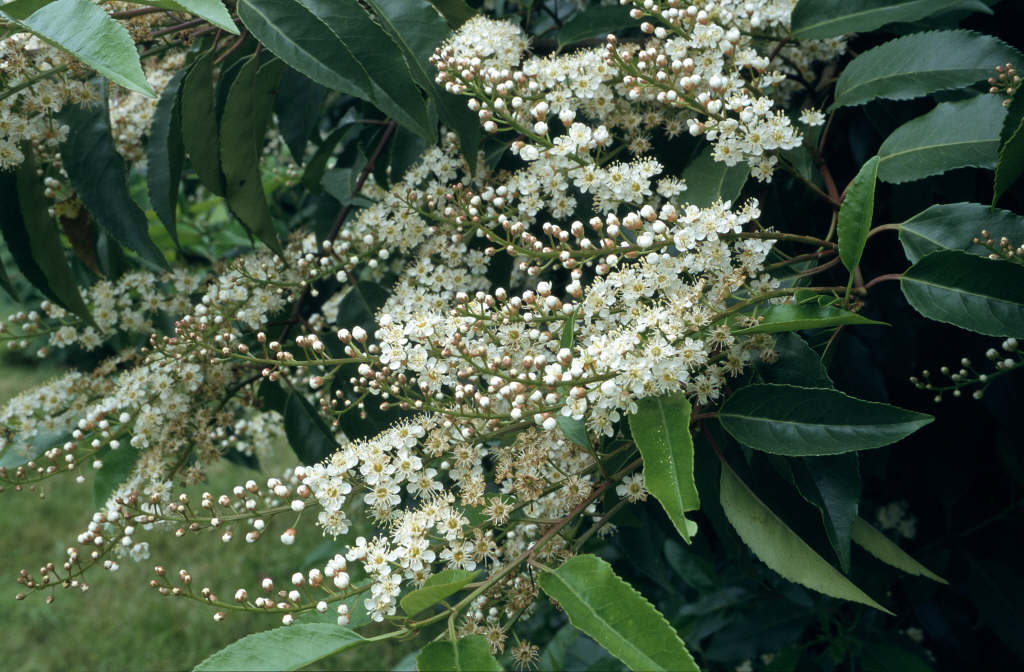Prunus lusitanica

Portugal laurel
A large evergreen shrub or small tree of spreading habit, the dark red shoots bearing deep green ovate leaves. Small, fragrant white flowers in racemes to 25cm in length in early summer, are followed by small, dark purple fruits
Size
Ultimate height
Higher than 12 metresTime to ultimate height
20–50 yearsUltimate spread
Wider than 8 metresGrowing conditions
Moisture
Moist but well–drained, Well–drainedpH
Acid, Alkaline, NeutralColour & scent
| Stem | Flower | Foliage | Fruit | |
| Spring | Green | |||
|---|---|---|---|---|
| Summer | White | Green | ||
| Autumn | Green | Purple | ||
| Winter | Green |
Position
- Full sun
- Partial shade
Aspect
North–facing or South–facing or West–facing or East–facing
Exposure
Exposed or ShelteredDrought resistance
Yes Hardiness
H5Botanical details
- Family
- Rosaceae
- Native to GB / Ireland
- No
- Foliage
- Evergreen
- Habit
- Bushy
- Potentially harmful
- Leaves harmful if eaten, fruit edible if ripe, but may be harmful if bitter. Wear gloves and other protective equipment when handling Pets (dogs, rabbits, rodents): Harmful if eaten - for further information and contact numbers regarding pets, see the HTA guide to potentially harmful plants
- Genus
Prunus can be deciduous or evergreen trees or shrubs with showy flowers in spring, and often good autumn foliage colour. Some have edible fruit in autumn, and a few species have ornamental bark
- Name status
Correct
- Plant range
- SW Europe, Morocco
How to grow
Cultivation
Easy to grow in any moist but well-drained moderately fertile soil in sun or partial shade. Superb hedging shrub and even thrives on poor, shallow, chalky soils
Propagation
Propagate by softwood cuttings in early summer
Suggested planting locations and garden types
- Wildlife gardens
- Low Maintenance
- Hedging and screens
Pruning
Pruning group 8 including hedges pruned in late spring or early summer
Pests
Leaves may be damaged by vine weevil and leaf-mining moths
Diseases
May be susceptible to powdery mildews. High Risk Host for Xylella fastidiosa
Get involved
The RHS is the UK’s gardening charity, helping people and plants to grow - nurturing a healthier, happier world, one person and one plant at a time.
